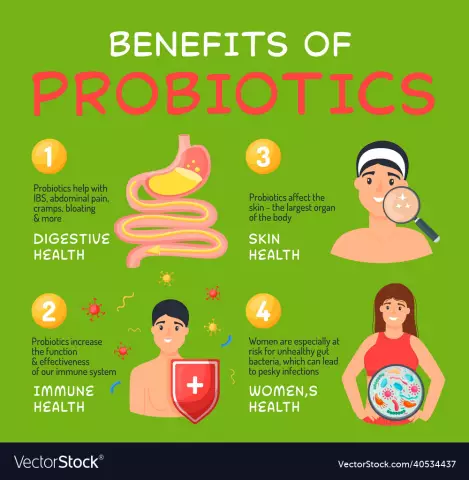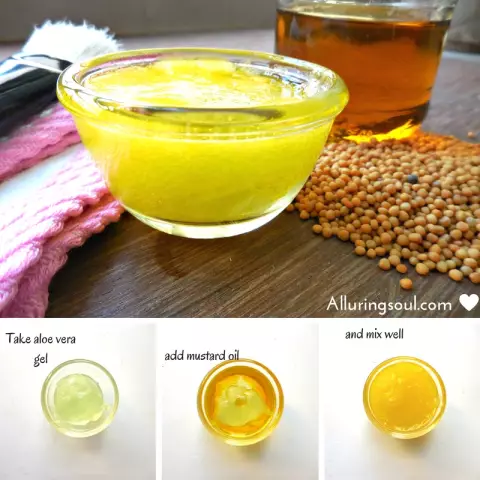- Author Rachel Wainwright wainwright@abchealthonline.com.
- Public 2023-12-15 07:39.
- Last modified 2025-11-02 20:14.
Neo-angin
Neo-angin: instructions for use and reviews
- 1. Release form and composition
- 2. Pharmacological properties
- 3. Indications for use
- 4. Contraindications
- 5. Method of application and dosage
- 6. Side effects
- 7. Overdose
- 8. Special instructions
- 9. Use in childhood
- 10. Drug interactions
- 11. Analogs
- 12. Terms and conditions of storage
- 13. Terms of dispensing from pharmacies
- 14. Reviews
- 15. Price in pharmacies
Latin name: Neo-angin
ATX code: R02AA20
Active ingredient: amylmetacresol (amylmetacresol), dichlorobenzyl alcohol (dichlorobenzyl alcohol), levomenthol (levomenthol)
Producer: Divapharma GmbH (Germany)
Description and photo updated: 22.11.2018
Prices in pharmacies: from 103 rubles.
Buy

Neo-angin is a combined antiseptic preparation for topical use in otorhinolaryngology and dentistry.
Release form and composition
Neo-angina is available in the form of lozenges and lozenges without sugar: red (white bloom may be present), round, slightly biconvex, rough surface, with a specific odor; slight roughness of the edges, uneven coloring, air bubbles in the caramel mass are allowed (in a blister strip of 8 pcs., in a cardboard box 2 packs; in a blister strip of 12 pcs., in a cardboard box 2 or 4 packs).
1 lozenge contains:
- active ingredients: amylmetacresol - 0.60 mg; dichlorobenzyl alcohol - 1.20 mg; levomenthol - 5.90 mg;
- auxiliary components: glucose syrup, peppermint leaf oil, sucrose, star anise oil, crimson dye (Ponso 4R), tartaric acid.
1 sugar-free lozenge contains:
- active ingredients: amylmetacresol - 0.60 mg; dichlorobenzyl alcohol - 1.20 mg; levomenthol - 5.72 mg;
- auxiliary components: isomalt, star anise oil, peppermint leaf oil, crimson dye (Ponso 4 R), tartaric acid.
Pharmacological properties
Pharmacodynamics
Neo-angin is a combined drug. The mechanism of action is due to the activity of the substances that make up Neo-angina. Amylmetacresol is a phenol derivative, dichlorobenzyl alcohol is a benzene derivative, and levomenthol is a cyclic monoterpene. Their combination contributes to the antiseptic and minor local anesthetic effect. Antiseptics are active against pathogenic microorganisms in the oral cavity and pharynx. The most common pathogens of pharyngitis include such gram-positive and gram-negative microorganisms as staphylococci, pneumococci, fusobacteria, including Staphylococcus aureus, Branhamella catarrhalis Haemophilus influenzae, Pseudomonas aeruginosa. In addition, Candida albicans and other yeast or pathogenic fungi can be the causative agent of the disease.
The main antibacterial effect of amylmetacresol and dichlorobenzyl alcohol is manifested on the surface of the mucous membrane, where both substances interact with cell membrane lipids. Levomenthol, complementing their action, exhibits a slight anesthetic effect of the mucous membrane by stimulating the cold receptors in the oral cavity.
Neo-angina is used to treat such infectious and inflammatory diseases of the oral cavity and pharynx as colds, tonsillitis, laryngitis, gingivitis, pharyngitis, tonsillitis, stomatitis, candidiasis. Its use is indicated when the first signs of diseases of the oral cavity and pharynx appear. Early therapy often avoids antibiotics. By eliminating the symptoms of irritation of the mucous membranes of the upper respiratory tract, the drug soothes sore throat and relieves nasal congestion.
With slow dissolution of the tablet in the mouth, the released active components of Neo-angina cause a local antiseptic and a small local anesthetic effect, and their adhesion to the mucous membrane prolongs this action.
The tablets are well tolerated and taste good.
The effectiveness of the drug against pathogenic microorganisms does not decrease with prolonged use.
Pharmacokinetics
The absorption of all active components of the drug is fast.
Dichlorobenzyl alcohol is metabolized to form 2,4-dichlorobenzoic acid, the excretion of which occurs through the kidneys unchanged or as a glycine compound. Amylmetacresol and levomenthol are excreted through the kidneys as glucuronides.
Indications for use
According to the instructions, Neo-angin is used for the following diseases of the oral cavity, pharynx and larynx of infectious and inflammatory etiology:
- pharyngitis, an uncomplicated form of angina, laryngitis, tonsillitis - for prevention and therapy;
- aphthous stomatitis, gingivitis, candidiasis - for the treatment of inflammation of the gums and oral mucosa.
Contraindications
- children under 6 years of age;
- hypersensitivity to the components of the drug.
In addition, resorption tablets are contraindicated for the treatment of patients with glucose-galactose malabsorption.
Instructions for use of Neo-angina: method and dosage
Neo-angin tablets are used by absorption in the mouth until completely dissolved.
Recommended dosage: 1 pc. every 2-3 hours. The maximum daily dose is 8 pcs.
Side effects
- from the digestive system: dyspepsia;
- from the immune system: allergic reactions.
Overdose
Overdose symptoms have not been established.
special instructions
The carbohydrate content in one lozenge corresponds to 0.22 XE (bread unit).
Pediatric use
Contraindicated for use in children under 6 years of age.
Drug interactions
With the simultaneous use of Neo-angina with other drugs, no clinically significant interaction has been established.
Analogs
Analogs of Neo-angina are: Angi Sept, Angilex, Strepsils Plus, Strepsils, Traysils, Hexaliz, Geksoral, Gripkold, Hexoral Lorsept, Cameton, Coldakt, Lizak, Yoks, Decatilen, Ajisept, Anpisobol, Ingalizte, Hepilor, Falimint.
Terms and conditions of storage
Keep out of the reach of children.
Store at temperatures up to 25 ° C, protected from moisture.
The shelf life is 5 years.
Terms of dispensing from pharmacies
Available without a prescription.
Reviews about Neo-Angina
Reviews about Neo-Angina are mostly positive. They note the effectiveness of the drug for relieving discomfort in the throat. The tablets quickly reduce pain and inflammation, relieve redness and sore throat, and refresh the oral cavity. The drug exhibits the most pronounced effect at the initial stage of the disease. The absorption of several tablets a day at the appearance of the first symptoms of an inflammatory process in the throat allows many patients to localize and interrupt the development of the disease. In addition, the advantages of the drug are often low cost, ease of use, pleasant taste and the presence of a dosage form that does not contain sugar.
A significant drawback is the content of a synthetic dye in the composition of Neo-angina, which, when absorbed, stains the tongue and can cause allergies.
The price of Neo-Angin in pharmacies
The price of Neo-angin lozenges for 16 pcs. in a package (2 blisters of 8 pcs.) ranges from 103 to 120 rubles; for 24 pcs. in a package (2 blisters of 12 pcs.) is from 125 to 140 rubles.
Neo-angin: prices in online pharmacies
|
Drug name Price Pharmacy |
|
Neo-Angin sugar-free lozenges 16 pcs. RUB 103 Buy |
|
Neo-Angin tablets for rassas. sugar-free 16 pcs. 108 RUB Buy |
|
Neo-Angin for children sugar-free lozenges (cherry) 24 pcs. 117 RUB Buy |
|
Neo-Angin lozenges 24 pcs. 125 RUB Buy |
|
Neo-Angin tablets for rassas. 24 pcs. RUB 128 Buy |
|
Neo-angin sugar-free lozenges cherry 24 pcs. 139 RUB Buy |

Anna Kozlova Medical journalist About the author
Education: Rostov State Medical University, specialty "General Medicine".
Information about the drug is generalized, provided for informational purposes only and does not replace the official instructions. Self-medication is hazardous to health!






